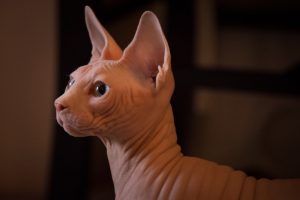Sphynx cats, with their unique hairless appearance, have captured the hearts of many cat lovers. These intelligent and affectionate creatures are known for their playful personalities and strong bonds with their humans. Understanding the average lifespan of a Sphynx cat is crucial for potential owners and dedicated caregivers alike. This article delves into the factors that influence a Sphynx cat’s longevity, common health issues, and tips for extending their lives.
What is the Average Lifespan of a Sphynx Cat
On average, Sphynx cats live between 8 and 14 years. However, like all living beings, their lifespan can vary depending on several factors, including genetics, diet, environment, and overall care. Providing optimal conditions can significantly impact a Sphynx cat’s longevity.
Factors Affecting the Lifespan of Sphynx Cats
Many key factors contribute to a Sphynx cat’s lifespan. Understanding these elements can help owners make informed decisions about their pet’s care.
- Genetic Factors. Genetics play a significant role in a cat’s lifespan. Sphynx cats are prone to certain hereditary conditions, such as hypertrophic cardiomyopathy (HCM), a heart condition, and various skin issues. Regular veterinary check-ups can help identify potential genetic predispositions early on.
- Diet and Nutrition. A balanced diet is essential for a Sphynx cat’s overall health and longevity. High-quality cat food that meets their nutritional needs should be provided. Obesity can shorten a cat’s life, so portion control is crucial.
- Environment and Lifestyle. A safe and stimulating environment contributes to a Sphynx cat’s well-being. Indoor living is generally recommended to protect them from accidents and diseases. Regular exercise and mental stimulation through playtime and interactive toys are vital for their physical and mental health.
- Veterinary Care. Preventive care is crucial for a long and healthy life. Regular check-ups, vaccinations, and dental care are essential. Early detection and treatment of any health issues can significantly impact a Sphynx cat’s lifespan.
Do Sphynx Cats Have Health Problems
While Sphynx cats are typically healthy, they are susceptible to certain health issues. Understanding these problems can help owners provide appropriate care.
- Due to their lack of hair, Sphynx cats can experience skin problems such as acne, eczema, and allergies. Regular grooming and gentle cleaning can help manage these conditions.
- Hypertrophic cardiomyopathy (HCM) is a serious heart condition that can affect Sphynx cats. Regular veterinary check-ups, including heart screenings, are essential for early detection.
- Dental issues are common in cats, including Sphynx cats. Regular brushing and professional dental cleanings can prevent tooth decay and gum disease.
- Sphynx cats may be more prone to respiratory issues due to their lack of hair. Keeping their environment clean and free from irritants can help reduce the risk of respiratory problems.
How to Extend the Lifespan of a Sphynx Cat
To extend the lifespan of a Sphynx cat, providing optimal care is essential. One of the key aspects is ensuring proper nutrition by offering a high-quality diet tailored to your cat’s age and weight. This helps maintain overall health and prevents obesity, which can lead to various health issues.
Regular veterinary care is equally important. Scheduling routine check-ups, vaccinations, and dental cleanings will help catch potential health problems early and ensure that your cat remains in good health. Additionally, skin and dental care should not be overlooked. Implementing a regular grooming routine to care for their sensitive skin, along with a proper dental care regimen, will contribute to your cat’s well-being.
Lastly, mental and physical stimulation play a crucial role in a Sphynx cat’s health. Providing plenty of toys, engaging in playtime, and offering interactive activities will keep your cat both physically fit and mentally sharp, contributing to a longer, healthier life.

Sphynx cats can be wonderful companions, with an average lifespan of 8 to 14 years. By understanding the factors influencing their longevity and providing excellent care, owners can significantly improve their cat’s quality of life and extend their lifespan. Remember, early detection and prevention are key to maintaining a healthy Sphynx cat.




